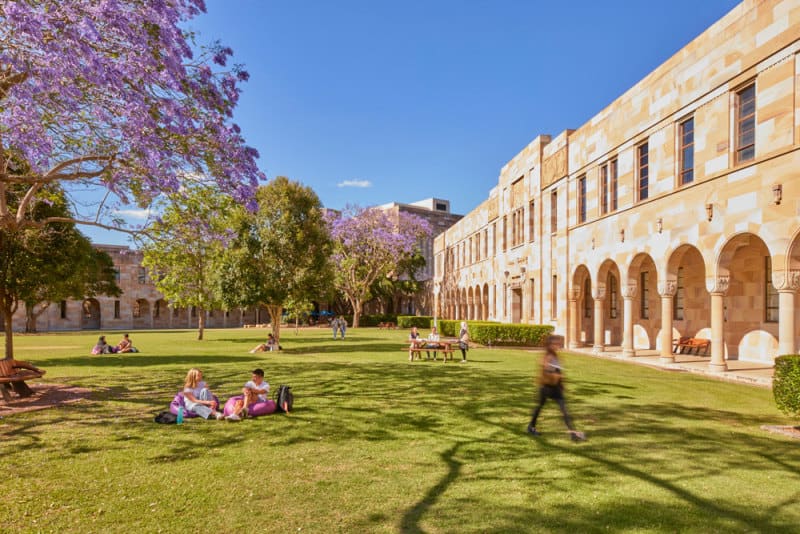Welcome to Brisbane: A Hub for Higher Education
G’day, parents! Are you embarking on the thrilling journey of supporting your child through the process of choosing a university? Well, you’re in luck, because Brisbane, lovingly known as the “River City,” is not only Queensland’s sunny capital but also a vibrant educational metropolis. In this comprehensive guide, we’ll dive into the world of Brisbane universities, exploring the plethora of options, the exciting campus life, and the various considerations that will ensure your child makes an informed decision tailored to their aspirations and needs.
Discover Brisbane’s Prestigious Universities
Brisbane is home to several world-renowned institutions that offer a wide spectrum of courses, exceptional facilities, and a multicultural student body. Let’s get acquainted with some of the top-notch educational landmarks in the city.
- The University of Queensland (UQ) – Nestled along the Brisbane River, UQ stands out with its esteemed research opportunities, diverse course offerings, and a picturesque campus that blends natural beauty with striking architecture.
- Queensland University of Technology (QUT) – With a focus on technology and practical learning, QUT has two campuses located at Gardens Point and Kelvin Grove, both fostering innovation and creative thinking.
- Griffith University – Emphasizing interdisciplinary degrees and community engagement, Griffith offers a supportive environment for both local and international students across its multiple campuses.
Each of these institutions provides an education that could open doors to both local and international careers, depending on your child’s interests and career goals.
Understanding Campus Culture and Student Life
Choosing a university isn’t just about academics; the campus culture and student life are just as crucial for your child’s overall well-being and personal growth. Brisbane’s universities are buzzing with various clubs, societies, sports teams, and events that create an enriching university experience.
Encourage your child to visit open days, engage with current students, and explore the campuses. They might find themselves drawn to UQ’s stunning lakes and wildlife, QUT’s prime location amidst the city’s cultural precinct, or Griffith’s community-focused atmosphere.
Exploring Courses and Career Outcomes
It’s important for your child to consider their interests and how they align with potential careers. Fortunately, Brisbane universities offer a broad range of courses—from science and engineering to the arts and business—catering to nearly every passion.
Universities in Brisbane collaborate with industries and organizations to provide work-integrated learning opportunities. Whether it’s internships, apprenticeships, or research projects, these experiences not only enhance your child’s resume but also give them practical insights into their chosen field.
In terms of career outcomes, your child can expect support through dedicated careers services. These often include job fairs, networking events, workshops, and one-on-one career counseling sessions, all aimed at equipping students for life beyond university.
Now, as we continue our journey into understanding Brisbane’s higher education offerings, we’ll delve deeper into the admission process, fees and financial aid, as well as tips on accommodation and living in Brisbane. So, cozy up with a cuppa and let’s help your child pave their path to a bright academic future!

Five Essential Preparation Steps for Parents
Preparing for your child’s university journey in Brisbane can feel like an expedition of its own. Here are five essential steps to keep in mind:
-
Understand the Admission Requirements:
Each university in Brisbane has its own set of admission criteria. These could include academic scores, English language proficiency, and prerequisites for specific courses. Be sure to check the individual university websites for detailed information. Help your child to prepare for any required standardized tests well ahead of time, and keep an eye on application deadlines to ensure they don’t miss out!
-
Explore Scholarship and Financial Aid Options:
Financing your child’s education is a significant aspect of the planning process. Brisbane universities offer a range of scholarships, bursaries, and grants for both domestic and international students. Investigate these opportunities early as some applications may be due before the university acceptance offer. Additionally, familiarize yourself with the cost of living in Brisbane to budget accordingly.
-
Help Your Child Choose the Right Accommodation:
Deciding where to live is a big decision. On-campus dorms provide a supportive and convenient environment, especially for first-year students. Alternatively, off-campus accommodation such as share-houses or private rentals might offer more independence. Visit potential accommodations with your child, so they feel comfortable and secure in their new home.
-
Encourage Participation in Orientation Programs:
Universities in Brisbane run orientation programs designed to help new students transition into university life. Participation can alleviate some of the common concerns all new students have, like making friends or navigating campus resources. Encourage your child to attend these programs and to take part in as many activities as possible.
-
Prepare for a Balanced Lifestyle:
University life is a mixture of academics, social activities, and personal development. Discuss time management strategies with your child and the importance of maintaining a healthy balance. Encouragement from parents can help new students manage stress, eat well, exercise, and make time for relaxation alongside their studies.
Understanding the Admission Process
The journey to university starts with the admission process. In Brisbane, universities offer several intakes throughout the year, with the primary intake typically in February. Applications can often be submitted through the Queensland Tertiary Admissions Centre (QTAC), which processes applications for most undergraduate courses across Queensland’s tertiary institutions.
Moreover, be aware that some programs may require additional application steps, such as portfolio submissions, auditions, or interviews. It’s a team effort, so help your child keep track of all requirements to avoid any last-minute rushes.
Fees and Financial Planning
Understanding the financial aspect of university education is crucial. Tuition fees vary depending on the university and course type. Domestic students may be eligible for government-subsidised fees and loan schemes, like the Higher Education Loan Program (HELP). For international students, tuition fees are typically higher and must be paid before they start their course. It’s also wise to factor in other costs such as textbooks, equipment, and living expenses when budgeting for your child’s education.
Settling into Brisbane: Tips on Accommodation and Living
Finding the perfect spot for your child to lay their head after a day of study can be a delightful hunt. Brisbane offers a variety of student accommodation options ranging from university colleges, purpose-built student apartments, to private rentals. When considering accommodation, convenience, and access to public transport should be at the top of your checklist. Get to know the suburbs around the universities to find the best fit for your child’s lifestyle and budget.
Living in Brisbane is an adventure in itself! Aside from academic life, the city offers sunshine-filled days, environments ranging from bustling city streets to serene parklands, and a calendar jam-packed with cultural events and engaging activities.
With this guide in hand, you’ll be well-equipped to support your child as they embark on their amazing educational journey in Brisbane. Just remember, the best university experience comes from a blend of thorough preparation and an open mind ready to embrace the fantastic opportunities ahead. Let the adventure begin!
For more great fun click here. For more information see here
Disclaimer
The articles available via our website provide general information only and we strongly urge readers to exercise caution and conduct their own thorough research and fact-checking. The information presented should not be taken as absolute truth, and, to the maximum extent permitted by law, we will not be held liable for any inaccuracies or errors in the content. It is essential for individuals to independently verify and validate the information before making any decisions or taking any actions based on the articles.




